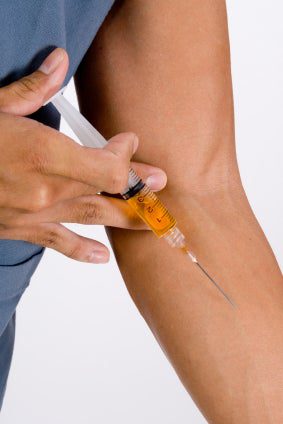If cheating doesn’t help you win, is it still cheating? Probably. But, if cheating doesn’t help you win, should anybody care? The World Anti-Doping Agency (WADA) announced this week that it has purchased thousands of kits to blood test athletes for HGH in advance of and during the Beijing Olympics. Yippee? Not so much. While major news organizations have been hailing the breakthrough, they’ve also been ignoring an article published online in the Annals of Internal Medicine that suggests HGH doesn’t actually help cheaters win. The article reviewed 27 studies over the past 40 years and found nothing but a cosmetic enhancement as a result of HGH. The research is consistent with testimony to Congress from a panel of experts, including Dr. Richard Perls with whom we spoke in February.
To ethicists, idealists and mothers of 5th graders, this missing ‘enhancement’ in performance enhancing drug is irrelevant in the binary discussion of good and evil. To them, all cheaters are created equal. The truth behind it, though, is murkier. HGH has been lauded as the elephant on the field, an undetectable drug crippling progress in a war on drugs. But the data suggests WADA’s test may just be a red herring to distract us from the fact that good criminals can be better than good cops.
Athletes know that the Agency was close to a test and they’ve also heard the data on HGH’s (non-)effects. And we all know better than to copy off the kid flunking out. WADA might catch a few athletes this summer. But, while they’re patting themselves on the back, be certain that the cheaters in class have a whole new formula for success.









